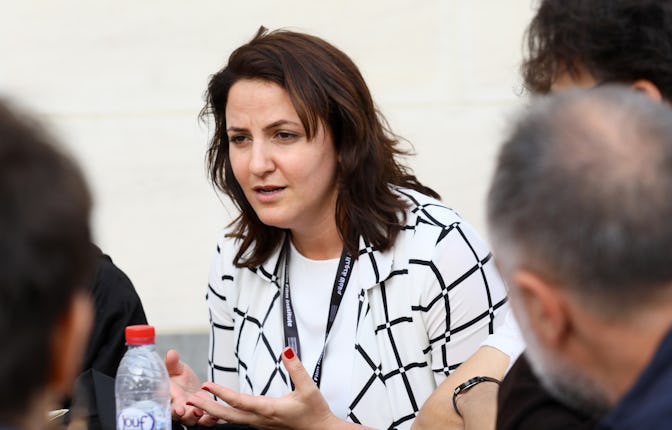Netflix has created a new grant for female Arab filmmakers
The $250,000 fund will aid writers, producers, and directors from Tunisia, Lebanon, and Morocco.

Netflix is doing some good while garnering a bit of positive press, as the streaming giant has teamed with the Lebanon-based Arab Fund for Arts and Culture (AFAC) on a new grant. Together, the two will provide a one-time pool of $250,000 that will aid five female Arab producers, writers, and directors who currently have projects shortlisted. The initiative is headed by the Netflix Fund for Creative Equity, established in 2021 to influence diversity within the entertainment industry.
The shortlist features women from Tunisia, Lebanon, and Morocco. The grant recipients are director/producer Asmae El Moudir’s (The Mother Of All Lies); Lebanese producers Diala Kachmar (From The Other Shore), Jana Wehbe (The Day Vladimir Died), and Tania Khoury (Manity); and Tunisian director/producer Sarra Abidi’s (My Name Is Clara).
Nuha El Tayeb, Netflix’s director of content acquisitions for MENA (Middle East and North Africa) and Turkey wrote in a blog, “The Arab world has a long-standing history of women in entertainment, and we’ve had incredible successes and firsts from the region that we’re all very proud of. But in order to give more people a chance to see their lives reflected on screen, we need more women behind and in front of the camera.” He added, “While they hail from different cities/regions and have different specialties — some are producers, some are writers and some are directors — all the women receiving support share a common urge to tell stories that haven’t been told before and tackle subjects often considered unconventional for women. ... We are committed to telling stories about and by women across our slate in the Arab world.”
AFAC’s Executive Director said in a statement, ”More and more Arab women filmmakers are creating moving images that have the power to shed light on the realities of the region. This second collaboration with Netflix, this time to support women in the field of cinema, complements perfectly AFAC’s mission to promote diversity of voices and narratives.”
This is the second time that Netflix has aided filmmakers in the region alongside the AFAC, after setting up two hardship funds during the pandemic. This next, more bold move is a wonderful initiative to support Arab female filmmakers who have unique stories to tell that aren’t heard and seen enough. It’s also a smart PR move for Netflix, which needed a good-faith story after last year’s unwanted press concerning unhappy LGBTQ+ employees and Dave Chappelle’s Netflix special. Hopefully, the entertainment titan will continue to use its massive capital to promote more diverse representation in the entertainment industry.